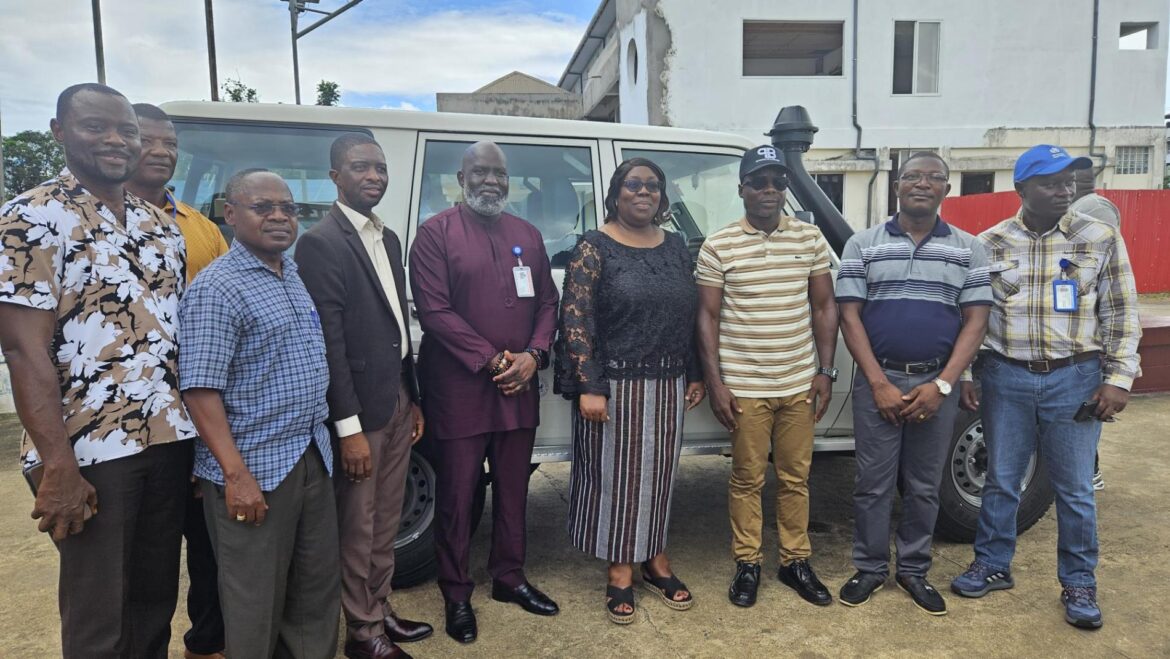Monrovia, Liberia – In a major boost to Liberia’s public health efforts, the World Health Organization (WHO), in partnership with Effect Hope, Anesvad Foundation, and Hope Rises International, has donated a brand-new Toyota Land Cruiser to Liberia’s Ministry of Health. The vehicle was formally handed over during an official ceremony aimed at bolstering Liberia’s campaign against neglected tropical diseases (NTDs).
Designed for rugged terrain, the Land Cruiser will be used for outreach, monitoring, and community education—especially in Liberia’s hard-to-reach regions where diseases like lymphatic filariasis, Buruli ulcer, leprosy, schistosomiasis, and soil-transmitted helminths remain prevalent.
Dr. Olushayo Olu, acting WHO Country Representative, emphasized the significance of the joint effort: “This donation reflects our shared commitment to eliminating NTDs in Liberia,” he stated.
Receiving the vehicle on behalf of the Ministry, Dr. Catherine Cooper, Deputy Minister for Health Services and Chief Medical Officer, praised the intervention: “Neglected tropical diseases affect communities across Liberia. With this vehicle, we can now extend life-saving treatments and surveillance services to places we couldn’t reach before.”
Nationwide Progress and Ongoing Challenges
Since November 2024, Liberia has carried out two nationwide Mass Drug Administration (MDA) campaigns, treating over 2 million people against diseases such as onchocerciasis, schistosomiasis, lymphatic filariasis, and various worm infections. These efforts are part of Liberia’s 2023–2027 NTD Master Plan, aligned with WHO’s global goal of eliminating NTDs by 2030.
Despite these initiatives, Liberia still faces challenges including limited funding and logistical barriers. The terrain and funding gaps continue to hamper full coverage—especially in remote areas.
Partnerships, Local Leadership, and Community Action
This donation represents a vital milestone for Liberia’s health partnerships and acknowledges the power of coordinated leadership and community involvement. By combining donor support, WHO guidance, and government ownership, Liberia is steadily improving service quality and moving closer to a future free of NTDs.


